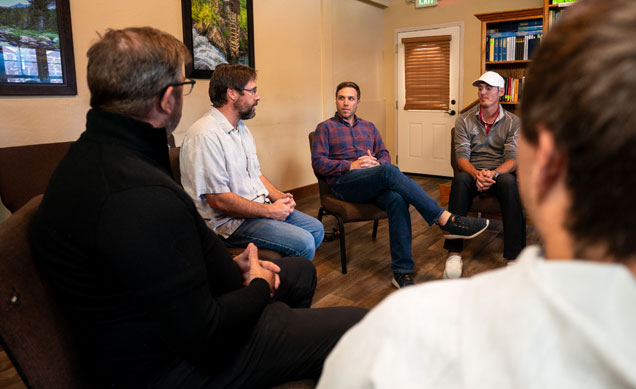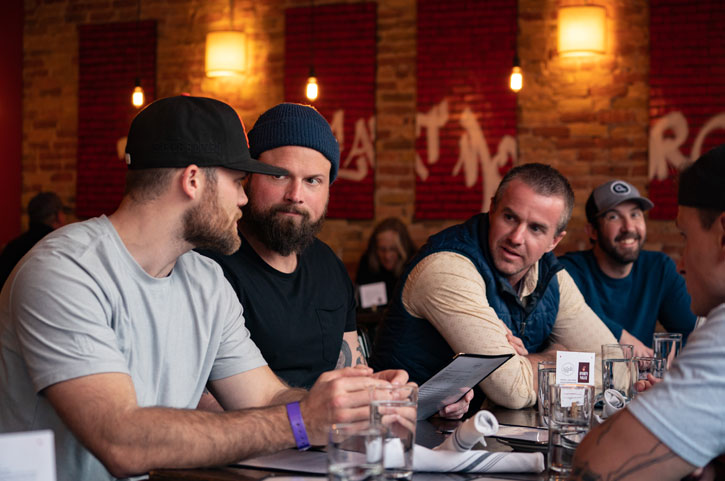If you’ve ever tried to stop drinking on your own, you already realize how overwhelming it can be. Alcohol manages to insinuate itself into every part of life — relationships, career, health, even your own identity. Maybe you’ve tried outpatient treatment in the past, or maybe you’ve tried white-knuckling at home. But occasionally, what you truly require is a total restart — a secure, well-organized setting wherein the emphasis on recovery is 24/7. That is where residential alcohol treatment is involved.
At Jaywalker, a rehab for men in Colorado, we believe that recovery is more than just putting down the bottle. It’s living a life of purpose, meaning, and responsibility. In this guide, we’ll dispel the mystery of just what residential alcohol treatment is, who it’s for, what it’s like, and how much it will cost, and why our approach works for men who are serious about changing their lives.
What Is Residential Alcohol Treatment?
Residential alcohol treatment, sometimes called inpatient alcohol rehab, means living at a treatment center while receiving care. Instead of trying to manage triggers at home or fitting therapy into an already chaotic schedule, you step into a safe, structured environment where everything is designed to support recovery.
Think of it as pressing pause on the outside world. For 30, 60, or even 90 days, your main focus becomes healing your body, rewiring your mind, and learning how to live without alcohol. At Jaywalker, that includes:
- A supportive community of men who get what you’re going through.
- Evidence-based therapies proven to help people with alcohol use disorder.
- Adventure-based and experiential activities that reconnect you with purpose.
- Around-the-clock support so you’re never facing the hard moments alone.
Residential treatment is different from outpatient programs. With outpatient, you attend therapy a few hours a week while still living at home. That works for some people, but if alcohol has taken a strong hold on your life, the constant access to triggers and stressors can make relapse more likely. Residential care offers the reset many men need.
Who Needs Residential Alcohol Treatment?
Not everyone struggling with alcohol needs residential treatment — but for many men, it’s the best chance at lasting recovery. You might need a residential program if:
- You’ve already tried outpatient or counseling and have relapsed.
- You experience withdrawal symptoms (sweating, shaking, nausea, anxiety) when you try to quit.
- Your drinking impacts work, family, or health.
- You can’t quit once you begin drinking.
- You feel like alcohol has become your main coping tool.
Residential alcohol treatment is especially powerful for men who thrive on structure and accountability. At Jaywalker, we’ve found that when men live and heal alongside peers who understand the struggle, recovery becomes less about isolation and more about brotherhood.
What to Expect in Residential Alcohol Treatment
A Day in the Life
Morning
Afternoon
Evening
Between therapy sessions and groups, there’s time to exercise, journal, or just catch your breath. Unlike the chaos of daily life, every hour here has a purpose — to help you heal and grow.
Therapies and Activities
Residential alcohol treatment isn’t one-size-fits-all. At Jaywalker, our men’s program includes:
- Cognitive Behavioral Therapy (CBT) and Dialectical Behavioral Therapy (DBT) to reshape thinking patterns.
- Trauma-informed care for men who carry unresolved pain.
- Experiential therapy — hiking, fitness, service work — to rediscover meaning.
- Peer groups designed for honesty, accountability, and real connection.
By the end of treatment, men don’t just leave with fewer cravings — they leave with a toolbox of strategies to face life head-on.
How Long Does Residential Alcohol Treatment Last?
30 days
60 days
90+ days
Costs & Insurance for Residential Alcohol Treatment
Money shouldn’t stand in the way of recovery, but it’s natural to worry about cost. On average, residential alcohol treatment in the U.S. ranges anywhere from $7,500 to $30,000 per month, depending on the program’s length, location, and services.
The good news: insurance often helps cover residential treatment. At Jaywalker, our admissions team works directly with providers to verify benefits and explain what’s covered.
Benefits of Choosing Residential Alcohol Treatment
Why choose residential care over trying to quit on your own or attending outpatient? Here are some of the biggest benefits:
- 24/7 support: You’re never alone in the hard moments.
- A safe environment: Free from triggers, bars, and old patterns.
- Peer accountability: Men supporting men creates strength.
- Structure and routine: Healing thrives in stability.
- Relapse prevention planning: Tools for long-term success.
For men who’ve felt stuck in cycles of relapse, residential alcohol treatment offers the space to finally break free.
Life After Residential Alcohol Treatment
Treatment doesn’t end when you walk out the door. The real goal of residential care is to prepare you for the next chapter.
At Jaywalker, that includes:
Step-down programs
Relapse prevention planning
Alumni support
Why Jaywalker Is Different

Plenty of treatment centers talk about evidence-based care. What sets Jaywalker apart is our men-only, community-driven approach.
- Men’s rehab: Recovery looks different for men. We focus on accountability, honesty, and brotherhood.
- Colorado setting: Surrounded by mountains, our location offers adventure and a sense of peace you won’t find everywhere.
- Purpose-driven recovery: Sobriety isn’t just about not drinking — it’s about finding meaning, whether that’s through service, outdoor activity, or connection with others.
- Proven outcomes: Our alumni carry the tools of recovery with them long after they leave.
At Jaywalker, we understand how hard it is to imagine life without alcohol — but we also know what’s possible when men commit to change. Our residential alcohol treatment program in Colorado gives you the structure, therapies, and brotherhood to stop drinking and start living with purpose.
If you’re ready to take the next step, we’re here to walk it with you.
Contact Jaywalker today or verify your insurance benefits online.
FAQs About Residential Alcohol Treatment
Q: What is the success rate of residential alcohol treatment?
Q: How long should I stay in residential treatment?
Q: Does insurance cover residential alcohol treatment?
Q: What makes residential alcohol treatment different from outpatient?
Q: Can families be involved in residential alcohol treatment?
Related Blogs on Residential Treatment



